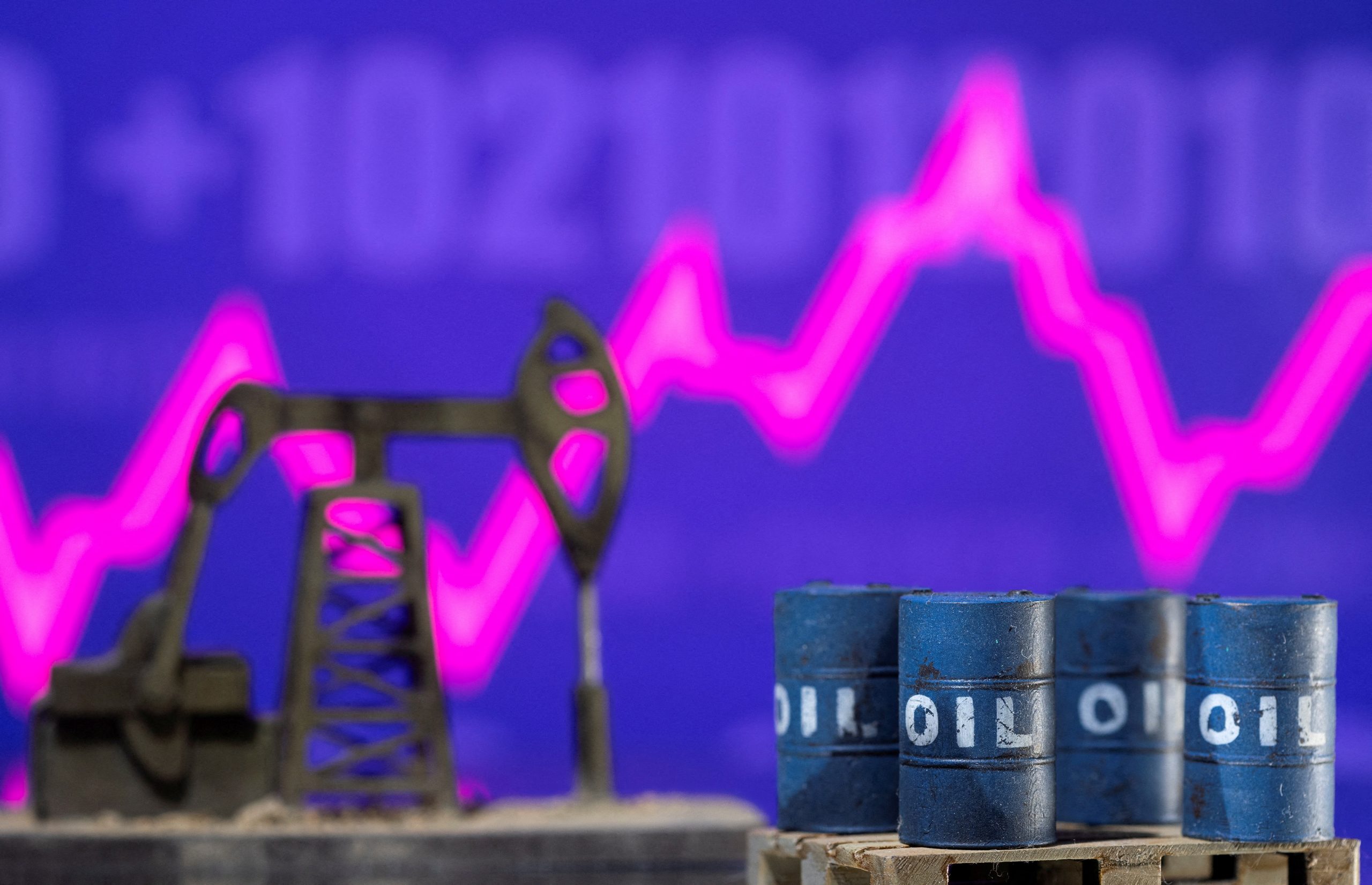
[elfsight_social_share_buttons id=”1″]
Oil prices spiked to their highest levels since 2008 on Monday amid market supply fears as the United States and European allies considered banning Russian oil imports and prospects for a swift return of Iranian crude to global markets receded.
Brent crude reached $139.13 a barrel and U.S. West Texas Intermediate (WTI) hit $130.50 in early trade, both benchmarks striking their highest since July 2008 before paring the gains.
By 1437 GMT, Brent was up $3.54, or 3%, at $121.65 per barrel and WTI up $1.93, or 1.7%, at $117.61.
Global oil prices have spiked more than 60% since the start of 2022, along with other commodities, raising concerns about world economic growth and stagflation. China, the world’s No. 2 economy, is already targeting slower growth of 5.5% this year.
U.S. Secretary of State Antony Blinken said on Sunday the United States and European allies were exploring banning imports of Russian oil, while the White House was coordinating with Congressional committees to move forward with a U.S. ban.
“We consider $125 per barrel, our near-term forecast for Brent crude oil, as a soft cap for prices, although prices could rise even higher should disruptions worsen or continue for a longer period,” UBS commodity analyst Giovanni Staunovo said.
A prolonged war could see Brent moving above the $150 per barrel mark, he said.
Analysts at Bank of America said if most of Russia’s oil exports were cut off, there could be a 5 million barrel per day (bpd) or larger shortfall, pushing prices as high as $200.
JP Morgan analysts said oil could soar to $185 this year, and analysts at Mitsubishi UFJ Financial Group Inc (MUFG) said oil may rise to $180 and cause a global recession.
Russia is the world’s top exporter of crude and oil products combined, with exports around 7 million bpd, or 7% of global supply. Some volumes of Kazakhstan’s oil exports from Russian ports have also faced complications.
The head of Japan’s largest business lobby said the country’s imports of Russian crude could not be replaced immediately. Russia is Japan’s fifth-biggest supplier of crude oil and liquefied natural gas (LNG).
Meanwhile, talks to revive Iran’s 2015 nuclear deal with world powers were mired in uncertainty after Russia demanded a U.S. guarantee that sanctions it faces over the Ukraine conflict would not hurt its trade with Tehran. China also raised new demands, sources said.
France told Russia on Monday not to resort to blackmail over efforts to revive the nuclear deal, while Iran’s top security official said the outlook for the talks “remains unclear”.
“Iran was the only real bearish factor hanging over the market but if now the Iranian deal gets delayed, we could get to tank bottoms a lot quicker especially if Russian barrels remain off the market for long,” said Amrita Sen, co-founder of Energy Aspects, a think tank.
Iran will take several months to restore oil flows even if it reaches a nuclear deal, analysts said.
Separately, U.S. and Venezuelan officials discussed the possibility of easing oil sanctions on Venezuela but made scant progress toward a deal in their first high-level bilateral talks in years, five sources familiar with the matter said, as Washington seeks to separate Russia from one of its key allies.
Copyright 2022 Thomson/Reuters
